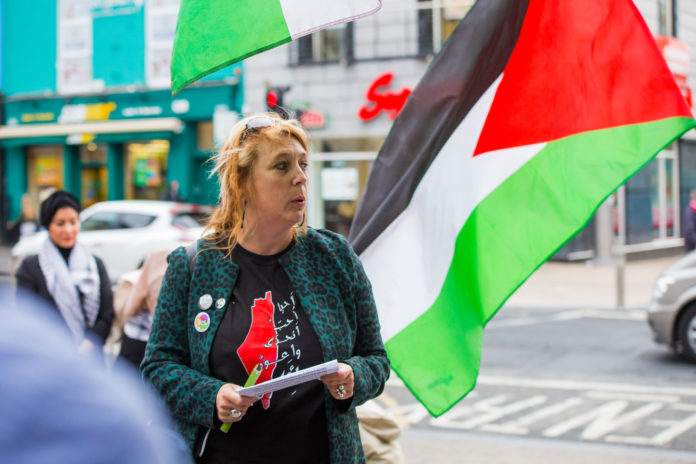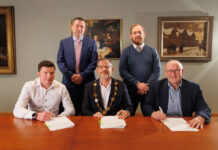
A YEAR before Limerick campaigner Zoe Lawlor was arrested by Israeli troops for attempting to enter Palestine by sea in November 2011, 688 activists participated in a ‘Freedom Flotilla’ expedition where an Israeli Defence Force (IDF) raid led to the deaths of nine people and many more wounded.
Three international lawyers appointed to the task of evaluating the actions of Israel by the United Nations under the Geneva Convention found that the IDF’s actions were “disproportionate” and “betrayed an unacceptable level of brutality”.
So to say that Zoe and the 15 other Irish activists making their way to Gaza by boat, with the hope of breaking Israel’s naval blockade, could have found themselves on choppy waters was an understatement.
“We were nearly there. We thought, ‘are we actually going to make it?’” Zoe recalled of her odyessey turned international emergency.
Zoe and her crew didn’t make it, and they spent the next week detained by Israeli authorities before being deported back to Irish soil.
Today, Zoe is chairperson and one of the founding members of the Irish-Palestinian Solidarity Campaign (IPSC), which began back in 2001 as a collaboration between activists, academics, and journalists in an effort to bring the conflict in Palestine to light and shape Irish policy on Israel.
15 years on from her terrifying brush with Israeli forces, this reporter spoke with Zoe to look back and reflect on the experience.
“We’re still sailing, nothing’s happened, and then all of a sudden we see these kinds of golden boats on the horizon. We’re surrounded by these zodiacs (rigid inflatable boats). They started circling us, and then we were taking on water,” she remembers.
As the boats began to circle the small Irish vessel – aptly titled ‘Saoirse’, the Irish word for freedom – a vortex of water formed causing the ship to fill with water. Not long after, Zoe says, water cannons from the Israeli gunships incapacitated most of the electronics onboard.
As the Israeli navy members boarded the vessel, it became clear to Zoe that her trip was not going to be an hospitable one.
Zoe would later write in an online blog post about the experience that “the guards dehumanised us in their own eyes as best they could, one of them screaming at [other crew members] that we were not human, not Israeli, and had no rights. This was a constant among the security personnel we encountered, they hate supporters of Palestine, just less than they hate the Palestinian people.”
After the Israeli vessels detained and escorted the Saoirse to the nearby Port of Ashdod, Zoe says the 15 activists were sent to court where they were charged with illegally entering Israel.
After being arrested aboard the Saoirse on November 4, 2015, and being held at Givon Detention Centre for a number of days, Zoe would eventually make it back to Ireland on November 11, after being transferred to Tel Aviv and flying back home via Turkey.
Zoe recalls relentless personnel searches, aggression, and verbal abuse while being held in Israel, but says she doesn’t “really like talking about this because in a week nothing bad happened to us, whereas Palestinians, especially now, are being murdered and tortured in Israeli prisons”.
Bringing the matter to today, with the conflict in Gaza still ongoing, and having escalated since the October 7 attacks, Zoe says action from Western society is absolutely crucial if the violence in Gaza is to end.
She can still be seen marching through Limerick City each Saturday with other members of the IPSC, who have congregated on Bedford Row each week since October 7, but attempting to break the blockade 15 years ago was a turning point for Zoe in her evolution as an activist.
“To see the disruption, it’s just beyond belief because, despite all the siege debris from various bombings, it’s really beautiful. Gaza was really beautiful,” she says.










